On July 30th the BBC News website published an uncredited report which was originally headlined ‘Six killed at Palestinian refugee camp in Lebanon’. Over the next day, that report was amended several times and it is currently titled ‘Lebanon clashes: Thousands flee violence at Palestinian refugee camp’.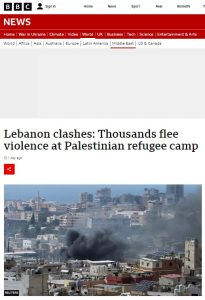
The final paragraph in all versions of that report about the continuing violent clashes in and around the Ein el-Hilweh refugee camp did not however undergo any changes and it reads as follows:
“More than 479,000 refugees are registered with UNRWA in Lebanon, the agency says. About half live in the country’s 12 refugee camps, which have “dire” living conditions, it adds.”
Most readers would of course be unlikely to click on that link and so they would not be aware of the fact that “registered with UNRWA in Lebanon” does not necessarily mean living in Lebanon:
“As of March 2023, the total number of UNRWA registered Palestine Refugees in Lebanon is 489,292 persons. In addition, UNRWA records show a total of 31,400 Palestine Refugees from Syria residing in Lebanon. However, registration with UNRWA is voluntary; deaths as well as emigration remain often unreported, and refugees can continue registering newborns as they move abroad through the UNRWA online registration system. In 2017, the Lebanese Palestinian Dialogue Committee together with the Palestine Central Bureau of Statistics carried out a census among Palestinians living in Lebanon and reported a total of 174,000 persons. A total of 45 per cent of Palestine Refugees are estimated to live in the country’s 12 refugee camps. About 200,000 Palestine Refugees access UNRWA services in Lebanon every year. The Agency’s current estimation is that no more than 250,000 Palestine Refugees currently reside in the country.”
One presumes that whoever wrote this report accessed the UNRWA website to which he or she chose to link but rather than inform BBC audiences that “no more than 250,000 Palestine Refugees currently reside in the country” the BBC journalist elected to present a number that is nearly double UNRWA’s estimation. Moreover, he or she went on to state that “about half” of that number “live in the country’s 12 refugee camps”, meaning that audiences would conclude that the number of people living in refugee camps is much higher than is actually the case.
As is so often the case in BBC reporting on the topic of Palestinian refugees in Lebanon, no effort is made to explain to readers why Palestinians have been kept in camps by Lebanon for generations. Audiences hear nothing at all about the Lebanese government’s long-running intentional discrimination against Palestinian refugees or the politics behind that policy.
Neither are readers given any explanation as to why Palestinian refugees have different criteria (including hereditary status) to refugees from the rest of the world and a separate UN agency that refrains from working towards their integration (even in territories run by Palestinians) and resettlement in host countries.
Update:
A BBC Arabic report by Ibrahim Chamas on the topic of the Ein el Hilweh camp similarly stated that “The number of Palestinian refugees in Lebanon stands at 489,000 people, with 31,000 Palestinian refugees from Syria, according to UNRWA”. Following a complaint by CAMERA Arabic, that report was amended and the relevant paragraph now reads:
“The number of Palestinian refugees registered in Lebanon stands at 489,000 people, with 31,000 Palestinian refugees from Syria, according to UNRWA statistics. The agency’s estimates say that the number of those of them who actually live in the country stands at approximately 250,000 people”
CAMERA UK has submitted a complaint requesting a similar correction to the English language report.
Related Articles:
UNRAVELLING YEARS OF BBC STATISTICS ON PALESTINIAN REFUGEES IN LEBANON
BBC RADIO 4 DOCUMENTARY FALLS SHORT ON PALESTINIAN REFUGEES
BBC NEWS IGNORES PALESTINIAN PROTESTS IN LEBANON
BBC NEWS IGNORES A STORY UNDER ITS BEIRUT BUREAU’S NOSE
BBC REPORT ON ASSASSINATION IN LEBANON FAILS TO PROVIDE CONTEXT

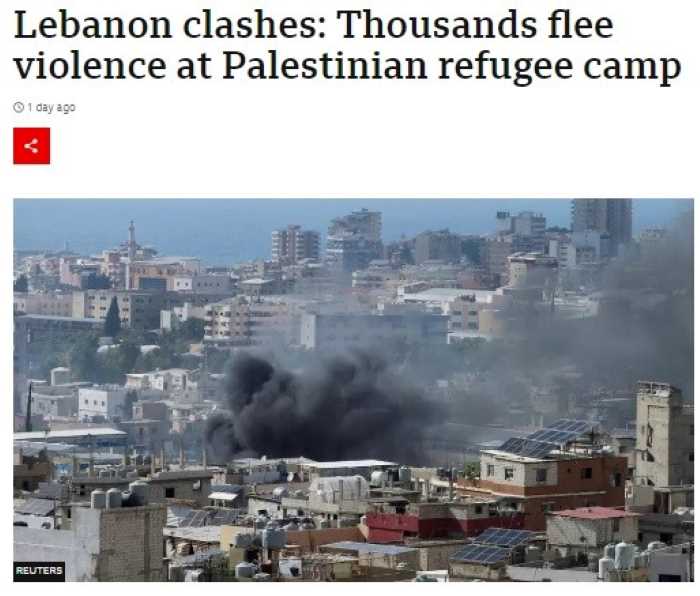
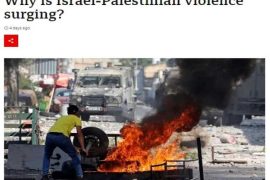

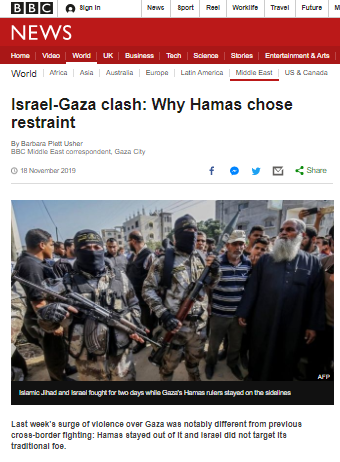
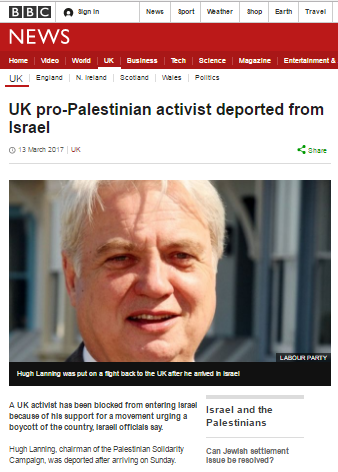
And UK residents are forced to pay £159 per annum for such garbage !!!